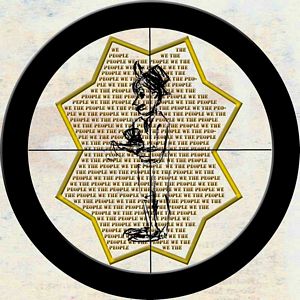Shield law divides journalists, bloggers? by Douglas Millison
The Justice Department is lobbying the U.S. Senate to amend a proposed reporters shield law to exclude bloggers from the limited protections that it would give paid reporters against the forced disclosure of confidential sources. The House passed a national shield law last fall in reaction to the recent spate of subpoenas issued by federal prosecutors to reporters like Judith Miller. That bill (search for H.R. 2102 EH) treated bloggers and paid media the same. The Senate version (search for S. 2035) uses different words to accomplish the same goal of treating citizen journalists just like the professional journalists (see graphic below).
But a dozen letters from Cabinet-level officials, posted on a Justice Department web site, argue that the shield law would aid terrorism because it “provides a broadly defined class of ‘covered persons’ with extraordinary legal protections against having to reveal confidential sources.” That last quote is from a March 31 letter from Defense Secretary Robert Gates. The other letters make the same point — the definition of covered persons is so broad as to harm national security.
Bloggers should be furious. And Senators should ignore this latest illogic from a Justice Department still tainted by the disingenuous Alberto Gonzales.
In principle journalism has never been a privileged profession but rather a form of free speech, which is every American’s right to practice under the First Amendment. To create an artificial privilege for paid practitioners would never have made any moral or legal sense — even less so now that technology is erasing the distinction between the citizen and paid journalist.
In practice, a senior White House official, Lewis Scooter Libby, has been convicted of perjury and obstruction for his role in attempting to silence Joseph Wilson when he questioned the falsehoods that formed the U.S. rationale for the invasion of Iraq. Libby sought to undermine Wilson by blowing the CIA cover of his wife, Valerie Plame. Now this untrustworthy administration wants the legal authority to discriminate between paid journalists — who were so accepting of their leaked lies — and unpaid bloggers who might get truthful tips from honest whistle-blowers. If the Senate and House cave in to White House pressure, they will create a double-barreled tool for manipulating public opinion — leak lies to mainstream media and prosecute any blogger who gets a truthful tip to the contrary.
This is a weak law in that it creates dozens of reasons to force “covered persons” to reveal sources, including what I call the Steve Jobs clause that would force a “covered person” to reveal a source who leaked a trade secret. Jobs tried to use the California courts to divine who had leaked info about a new Apple product to some bloggers, but the state’s shield law, which defines bloggers as journalists, got in his way. So if the federal law passes, any corporate official looking to hide anything behind a trade secret has a brand new ally in the U.S. Justice Department.
The arguments around the federal shield law are complex. The First Amendment Center offers a lengthy article on the history of this debate. Many people think weak federal protection is better than none at all. Fine, so long as every American who practices journalism plays by the same rules. Long ago the Founders wrote that “Congress shall make no law” limiting the First Amendment. No law means no differentiation between journalists on the basis of whether they are volunteers or get paid.
Text of House and Senate bills as regards “covered persons”

